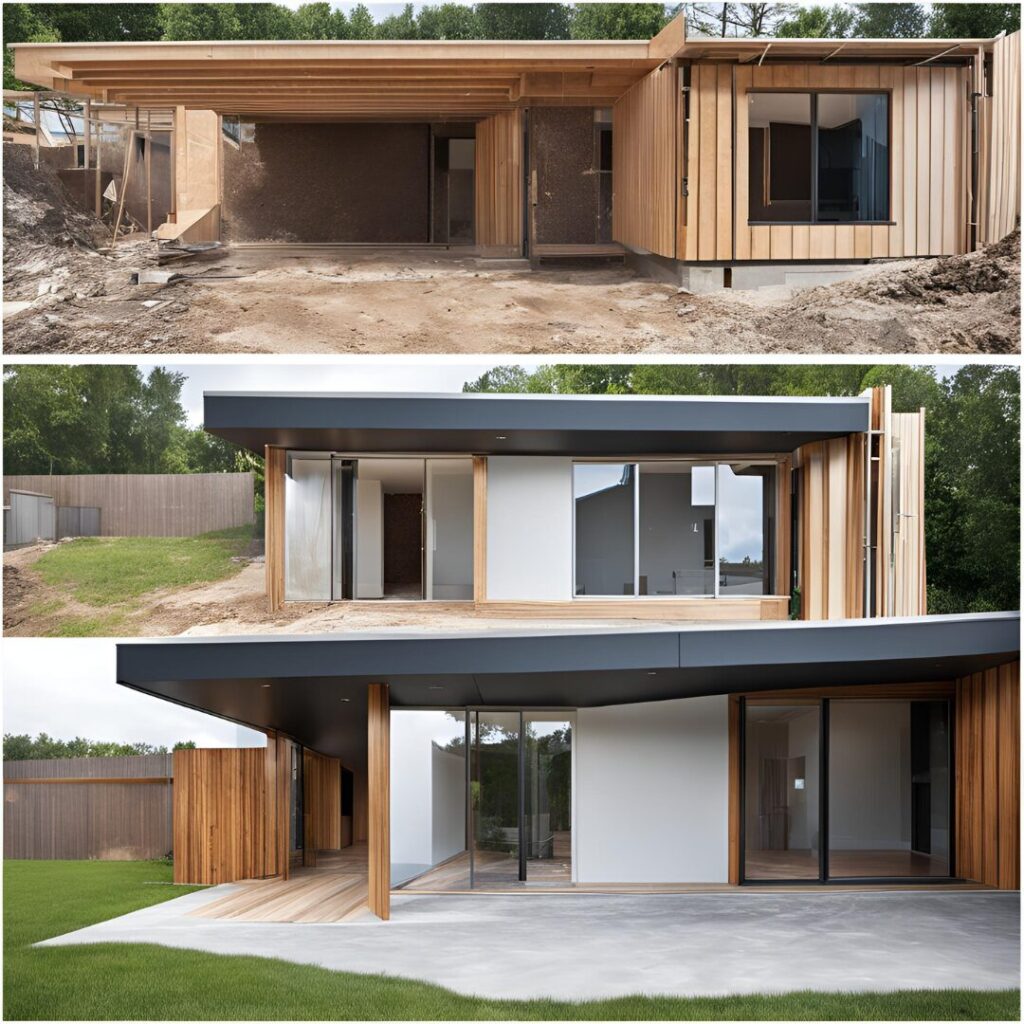
Maximize Your Local SEO Success with PlePer Tools | Sitelinx Agency
BlogHey There, Local SEO Enthusiasts! Let’s Talk PlePer Tools (And Why They’re a Game-Changer) So, you’ve got a local business, and you’re tired of playing hide-and-seek with Google, right? One day you’re on page one; the next, you’ve vanished faster than a free doughnut at a staff meeting. We’ve been there. Let’s cut through the noise and talk about how PlePer’s Local SEO Tools—paired with some good ol’ strategy—can turn that chaos into consistency. And hey, since we’re the Sitelinx Organic SEO Agency in Los Angeles, we’ll toss in some insider tips (and a few laughs) along the way. Why Local SEO Matters More Than Ever (Spoiler: It’s Not Just About Google) Let’s get real: if your business isn’t showing up when someone nearby Googles “best coffee shop” or “emergency plumber,” you might as well be invisible. Local SEO isn’t just a buzzword—it’s your digital storefront. And tools like PlePer? They’re the Swiss Army knife you didn’t know you needed. Here’s the kicker: 46% of Google searches are local. Forty-six percent. That’s like ignoring half your potential customers! Google Business reviews can make or break your reputation (and your rankings). Without technical SEO services, even the prettiest website might as well be a billboard in the desert. We’ve worked with dozens of small businesses at Sitelinx, and guess what? The ones who nail Local SEO always outshine competitors. It’s not magic—it’s strategy. PlePer’s Secret Sauce: Features We’re Obsessed With PlePer isn’t just another tool; it’s like having an SEO specialist in your pocket. Here’s why we’re fans: 1. Google Business Profile Management Made Easy Forget logging into 10 tabs to update hours or respond to reviews. PlePer lets you manage profiles in one dashboard. Pro tip: Google loves businesses that keep their info fresh. 2. Hyper-Local Keyword Tracking Why bother ranking for “best tacos” if you’re not tracking “best tacos in Echo Park”? PlePer’s geo-focused keywords are chef’s kiss. 3. Review Monitoring That Doesn’t Make You Sweat Got a bad review? PlePer alerts you instantly. Because nothing says “we care” like responding fast (and saving your 5-star average). “But Wait—How Does This Compare to Other Tools?” Glad you asked! Let’s break it down: Feature PlePer Generic SEO Tools Local Keyword Tracking ✅ Granular, neighborhood-level ❌ City-wide only Google Business Integration ✅ Full management + analytics ❌ Basic sync Review Response Templates ✅ Customizable & saved replies ❌ Manual typing every time FYI, most “best SEO companies for small business” (like yours truly, Sitelinx) use PlePer because it’s built for local wins. WordPress Users, Rejoice! PlePer Plays Nice With Your Site If your site runs on WordPress (and let’s face it, 43% of the web does), you’ll love PlePer’s WordPress SEO services integration. Sync your plugins, optimize meta descriptions, and fix broken links without leaving your dashboard. Our hot take: Pair PlePer with a website management pro (hi, that’s us) to avoid tech headaches. Because let’s be honest—if your site takes longer to load than your morning coffee brew, you’ve got a problem. “Should I DIY This or Hire an SEO Agency?” Great question! Here’s the deal: DIY: Perfect if you’ve got time to binge-learn SEO while running a business. (Spoiler: You don’t.) Hire a pro: Works if you want results without the 3 a.m. “Why am I not ranking?!” panic. At Sitelinx Organic SEO Agency, we blend PlePer’s tools with hands-on technical SEO services and content strategy. Think of us as your SEO co-pilot—minus the cheesy airline metaphors. 3 Common Local SEO Questions (Answered Without Jargon) 1. “How long until I see results?” It’s not microwave popcorn. Most businesses notice traction in 3–6 months. Consistency is key! 2. “Do Google reviews really matter?” YES. More reviews = higher rankings + trust. Just ask our client who doubled sales after we boosted their reviews. 3. “What’s the #1 mistake businesses make?” Ignoring website management. A slow, clunky site kills SEO—no matter how many keywords you stuff in. Ready to Stop Guessing and Start Growing? Look, we get it—Local SEO can feel like herding cats. But with tools like PlePer and a little help from your friends at Sitelinx (wink), you’ll turn chaos into clicks. So, what’s next? Try PlePer’s free trial (no credit card needed). Or, skip the trial-and-error and contact us for a strategy that actually works. Either way, quit hiding in Google’s shadows. Your future customers are searching—make sure they find you. P.S. If you’re still reading, you’re our kind of nerd. Let’s chat SEO over coffee ☕ (our treat).

Ultimate Guide to Starting a Successful Construction Business in 2025
How ToHow to Start a Construction Business (Without Losing Your Mind) Let’s be real: starting a construction business sounds awesome until you’re knee-deep in permits, insurance quotes, and that one client who thinks “budget” is a four-letter word. But hey, we’ve all been there—or at least, we’ve helped plenty of folks in LA navigate this chaos. At Sitelinx Organic SEO Agency, we’ve seen firsthand how blending grit with smart digital strategy can turn a backhoe and a dream into a thriving business. So grab a coffee (or something stronger), and let’s break this down. Step 1: Plan Like You’re Prepping for a Zombie Apocalypse Starting a construction biz isn’t just about hammers and hard hats. You need a roadmap that’s tougher than a concrete slab. Pick Your Niche (Or Regret It Later) Are you the roofing guru? The kitchen remodel wizard? Specializing isn’t just trendy—it makes marketing easier. Trust us, “we do everything” sounds desperate. Plus, Google loves specificity. If you’re the go-to for bathroom remodels in LA, local SEO becomes your best friend. Licenses, Insurance, and Other Fun Paperwork Get ready for paperwork so thrilling it’ll make your eyes glaze over. Every state’s different, but here’s the gist: Contractor’s license (check California’s CSLB requirements). Liability insurance (because someone will drop a sink through a client’s floor). Bonding (so clients know you won’t vanish with their deposit). FYI, skipping this step is like building a house on quicksand. Don’t. Step 2: Build a Brand That Doesn’t Scream “Generic” Your brand is more than a logo. It’s the vibe clients get when they see your truck or visit your website. Name & Logo: Keep It Simple, Einstein Avoid names like “Bob’s Construction” unless you want to blend into the abyss of Google search results. Think Coastal Builders Collective or Urban Frame Co.. Pair it with a clean logo—no clip art, please. Website: Your Digital Storefront A website isn’t optional. Even if you’re “old-school,” clients will Google you. Use WordPress—it’s flexible, affordable, and perfect for DIYers. Need help? Sitelinx Organic SEO Agency (that’s us) offers WordPress SEO services to make sure your site doesn’t look like it’s stuck in 2005. Pro Tip: Add a portfolio, client testimonials, and a clear “Contact Us” button. And for the love of drywall, optimize it for mobile. Step 3: Market Like You’re Running for Mayor You could build the Taj Mahal of treehouses, but if nobody knows you exist, what’s the point? Local SEO: Your Secret Weapon Want to show up when someone searches “construction companies near me”? Local SEO is your golden ticket. Claim your Google Business Profile, stuff it with photos, and beg clients for Google Business reviews. (Bribery with cookies works. Mostly.) Social Media: Not Just for Cat Videos Post progress pics, time-lapse videos, and maybe a blooper reel of that time your intern tried to use a nail gun. Platforms like Instagram and LinkedIn are gold for construction businesses. Paid Ads: Because Patience Is Overrated Google Ads and Facebook campaigns can get you in front of clients fast. But unless you’re an SEO specialist, let the pros handle it. Cough Sitelinx cough. Step 4: Tools & Tech That Won’t Make You Rage-Quit Software to Save Your Sanity Project Management: Trello or Asana for tracking deadlines. Accounting: QuickBooks (because math is hard). CRM: HubSpot to keep clients from ghosting you. Don’t Ignore Technical SEO Services Slow website? Broken links? Google will punish you harder than a foreman on caffeine. Technical SEO services fix that stuff. We’re biased, but Sitelinx happens to be one of the best SEO companies for small businesses in LA. Just sayin’. Step 5: Scale Without Crumbling Like a Cookie Hire Wisely (Or Suffer) Your team reflects your brand. Hire skilled workers, but don’t forget a marketing consultant to keep leads flowing. Track Metrics Like a Control Freak Customer acquisition cost Project profit margins Website traffic (thanks, SEO agency magic) Keep Learning (Or Get Left Behind) Trends change faster than a client’s mind about paint colors. Attend workshops, follow industry blogs, and maybe hire an SEO company to handle your website management while you focus on building stuff. 3 Burning Questions (Answered Without the BS) 1. “How much does it cost to start a construction business?” Expect $10k–$50k+ for licenses, insurance, tools, and marketing. Here’s a quick breakdown: Expense Cost Range Licenses & Permits $500–$2,000 Tools & Equipment $5,000–$30,000 Insurance $1,200–$5,000/year Website & SEO $2,000–$10,000 2. “Do I really need a website?” Unless you want clients to think you’re a scam? Yes. Even a basic WordPress site with WordPress SEO services beats nothing. 3. “How do I compete with bigger companies?” Niche down, crush local SEO, and deliver service so good clients write rave reviews. Or partner with the best SEO company in your area (wink) to level the playing field. Final Thought: Build Something That Lasts Starting a construction business is equal parts sweat, strategy, and stubbornness. But with the right plan—and a little help from an SEO agency that gets it—you’ll stand out in a crowded field. Need a hand with Google Business reviews, technical SEO, or just want to vent about permits? Hit up Sitelinx Organic SEO Agency. We’re in LA, we’re obsessed with results, and we promise not to bore you with jargon. Now go nail that first client. 🙂

Ultimate Guide to Starting a Successful Roofing Company in 2025
How ToHow to Start a Roofing Company (Without Falling Off the Ladder) Hey there, future roofing mogul! Thinking about trading your 9-to-5 for a life of shingles, ladders, and finally being your own boss? Let’s hammer out the details together. Starting a roofing company isn’t just about nailing down contracts—it’s about building a business that stands strong against storms, competitors, and Google’s ever-changing algorithms. (Yep, we’re looking at you, Local SEO.) At Sitelinx Organic SEO Agency here in Los Angeles, we’ve helped plenty of tradespeople like you turn their hustle into a legit empire. And trust us—if you skip the digital groundwork, you’ll be leaving money on the table (or worse, letting it slide right off the roof). Let’s break this down step by step. Laying the Foundation: Business Basics First things first: you need a solid business plan. Not the 50-page corporate snoozefest, but a clear roadmap that answers: What services will you specialize in? (Residential? Commercial? Thatched roofs for medieval enthusiasts? Hey, niche markets exist.) Who’s your competition, and how will you outshine them? What’s your pricing strategy? Spoiler: “Cheapest in town” is a race to the bottom. Licenses and insurance aren’t glamorous, but neither is a lawsuit. Check your state’s requirements—most demand a contractor’s license and liability insurance. Pro tip: Get workers’ comp even if it’s just you. Falling off a ladder alone is bad enough; doing it without coverage? Oof. Building Your Brand: More Than a Cool Logo Your company name matters. Keep it simple, memorable, and roof-specific. (Unless you want to be known as “Bob’s Roofing and Random Side Hustle.”) Once that’s sorted: Design a website that doesn’t suck A roofing company without a website in 2024 is like a hammer without a handle—useless. Use WordPress. Why? It’s flexible, affordable, and with plugins like Yoast, even your cousin’s dog could handle basic WordPress SEO services. Bold move: Hire a marketing consultant to help with branding. Colors, fonts, and messaging should scream “reliable pro,” not “guy who watched a YouTube tutorial.” Marketing: Where the Magic (and Roofing Leads) Happens Here’s where most newbies faceplant. You can’t just slap a magnetic sign on your truck and pray. You need a mix of old-school hustle and digital savvy. Local SEO: Your New Best Friend Why bother with Local SEO? Because when someone Googles “roofing company near me,” you want to be the first name they see. Optimize your Google Business Profile, gather Google Business reviews like they’re Pokémon cards, and embed a map on your website. FYI: At Sitelinx, we’ve seen roofing companies double their leads in 3 months just by fixing their technical SEO services. Broken links, slow load times, and mobile-unfriendly sites are lead killers. Paid Ads: The Quick Fix Google Ads and Facebook targeting can get you immediate visibility. But here’s the catch: if your website isn’t optimized, you’re just burning cash. Pair ads with solid SEO services for a one-two punch. Operations: Don’t Trip Over Your Own Tools Hiring a crew? Start small. Hire subcontractors for your first few jobs to avoid payroll headaches. Equipment is pricey—lease until you’re turning consistent profit. Software saves lives (or at least your sanity): Job management tools like JobNimbus or Roofr Accounting software like QuickBooks CRM systems to track leads (HubSpot’s free tier is gold) The Digital Toolbox: SEO and Beyond Let’s get real: If you’re not online, you’re invisible. Here’s what the best SEO companies for small business (like ours cough) recommend: Essential Tools for Roofing Startups Business Setup: Licenses, insurance, LLC registration Marketing: Google Ads, Facebook, Local SEO Website: WordPress, Yoast SEO, mobile optimization Operations: Job management software, CRM, invoicing tools WordPress SEO services are non-negotiable. Optimize your service pages with keywords like “emergency roof repair [Your City]” or “metal roofing installation.” Blog about common issues (e.g., “How to Spot Hail Damage”) to build authority. And hey, if coding makes your head spin, hire an SEO specialist. Companies like Sitelinx handle everything from website management to content creation—so you can focus on, y’know, actual roofing. 3 Questions Every New Roofer Asks (And Our Answers) “Do I really need a website?” Unless your target audience is Amish communities, YES. Even a simple WordPress site with your contact info and services builds credibility. “How do I compete with big roofing companies?” Lean into Local SEO and hyper-targeted ads. Big companies suck at personalized service—you don’t. “When should I hire an SEO agency?” Yesterday. Kidding (mostly). If you’re spending hours on Google Analytics without results, call a pro. Sitelinx Organic SEO Agency specializes in turning roofing startups into local legends. End shameless plug. 🙂 Wrapping Up: Don’t Let Your Business Go Down the Gutter Starting a roofing company is equal parts grit, strategy, and embracing the digital world. Build a killer website, dominate Local SEO, and for the love of dry attics, track your ROI. And if you’re feeling overwhelmed? That’s what the best SEO companies are for. Sitelinx offers everything from technical SEO services to reputation management—because even roofing bosses need backup. Ready to nail this? Grab your toolbox, optimize your site, and let’s get you on top of Google’s search results. (And maybe a few rooftops too.) Need a hand? Contact Sitelinx Organic SEO Agency for a free consultation. We’ll handle the digital heavy lifting—you handle the hammers. 🛠️
